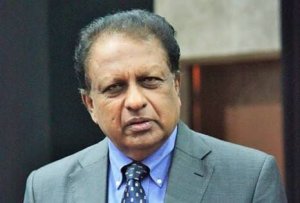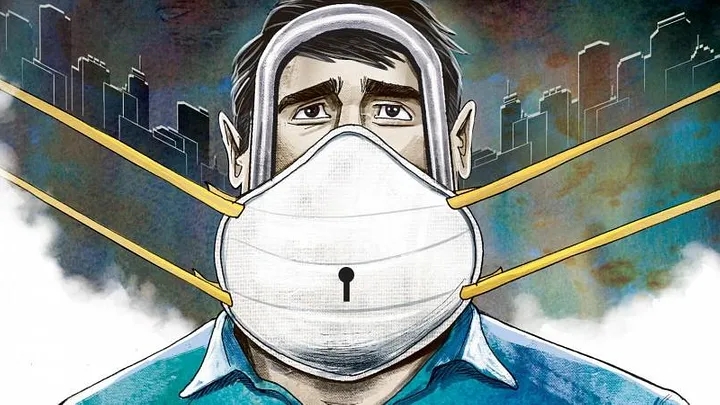
Negotiated Return of Indian Nationals
India was aware for years that Indian nationals abroad, who did not or could not become naturalized citizens in the countries of their adoption, would come back to India one day for one reason or another. But we hoped and expected that their return will be gradual as and when they return to where their minds and dreams have always been. The only contingencies we had anticipated were their redundancy in those countries because of the growth of technology, nationalization of jobs, xenophobia and, in extreme cases, internal or external conflicts. But what has now happened was unthinkable because the COVID-19 pandemic was not even in science fiction, though we now know that people like President George Bush and Bill Gates had the prescience to anticipate such an invasion of microbes. We had also conveniently forgotten that the world was devastated several times by pandemics. Our claim that we had wiped out various diseases from the face of the earth was too good to be true.
Today, we are seeing that our pride in having the Indian diaspora empire around the world has become a challenge of infinite proportions. Of course, among the thirty million people of Indian origin spread around the world, many of them are citizens of other countries, though even they will look up to us for some support if they face extreme situations. India fought for the rights of the Fiji Indians, all Fiji citizens, when they were virtually disenfranchised after a military coup in 1987. They did not want to return to India, but wanted India to get them visas for Australia, New Zealand, the US and Canada. It was India’s political and material support that democracy returned to Fiji after ten years.
The bulk of Indian nationals without citizenship or residence status abroad numbering about eight million are in the Gulf Cooperation Council (GCC) countries. About half of them are unskilled, 30% are semi-skilled and about 20% are skilled or engaged in prosperous businesses. Their remittances amount to about 40% of the foreign exchange remittances to India. They had played a pivotal role in building the GCC countries without any expectation of citizenship. Many had built dream homes in India to settle down in the evenings of their lives.
The COVID-19 pandemic has shattered many lives in the Gulf as many have contracted the virus and they do not have the minimum facilities for social distancing or medical treatment. They desperately want to return to India without any hope of going back to their jobs and hutments in the Gulf. They are disappointed that India is dragging its feet in bringing them back during the lockdown. Some of them have approached the courts in India to direct the Government to bring them back. The Union Government informed the courts that its present priority was to fight the pandemic and the return of Indian nationals would be considered very soon. The concerned Governments had agreed to extend the visas necessary to give time for them to return, the court was told.
Another group of Indian nationals, who will want to come back are the students and illegal migrants in the US, the UK and other countries who will come under pressure to leave the countries concerned. The number of Indian nationals involved in this category is not easily available.
In principle, the central and state governments have agreed in principle that those who wish to come back will be welcomed and looked after. But it is neither possible nor desirable to bring them all together to India when India is battling the pandemic. Therefore, a plan has to be negotiated by the Government of India with the Indian nationals and the Governments concerned. It may be recalled that the way Indian nationals returned from Kuwait and Iraq at the time of the first Iraq war without any consultation with the countries concerned had caused some friction. Fortunately, the two countries which are insisting that as many Indian nationals should be brought back to India are the UAE and the US, with whom we have excellent relations. The Gulf countries, particularly the UAE and Saudi Arabia have strategic partnerships with India. Since the catalyst for these relationships was the work of the Indians in these countries, they cannot ignore the need for their welfare.
The negotiated plan may be in three stages:
-
Indian nationals who are on visitor visas and those who have overstayed and have no income.
-
The blue-collar workers who are in tough living conditions where they cannot practice social distancing.
-
The white-collar employees and businessmen, who wish to return.
-
Doctors and health workers who are required presently in the countries concerned.
The UAE Government has said that only those who are not infected by the virus need go at this stage.This must apply to all the four categories. Those who are infected should be treated in the countries themselves, if necessary. As far as possible, those who had contracts should be enabled to return to the countries concerned after the corona crisis ends. A large number of foreign workers will be required for the reconstruction of these countries and the Indians could return.
The return of the Indian students and others without income in the US and other western countries may be even more complex. Many students may have gone for higher education with heavy bank loans and they will be reluctant to return. If the US Government insists that they should leave the country, many of them will lose their chances for a good education and career. The good relations established during “Namaste Trump” will be put to a severe test if President Trump insists on sending back the Indian students.
The entire world is expected to go into a deep and protracted recession even after the trajectory of the virus is under control. That is the reason why Governments are anxious to restart economic and commercial activities. Once the fear of infection slows down, many countries, including the Gulf countries and the US will need Indian technical personnel and workers. Perhaps, the return of the Indians may turn out to be for a short duration.
There are instances in history of the movement of Indians from one place to another turning out to be beneficial to the migrants. Many Indians, who had to leave Uganda during the days of Idi Amin, prospered in other countries after they began a new life. Many who returned from Burma after Ne Win’s military coup prospered in India, but the rice farmers who stayed behind are still struggling for subsistence as documentless workers. V. S. Naipaul, the inimitable chronicler of Indian migrants, once remarked that every journey would lead to progress. Like in some other cases, the present adversity may well be a blessing in disguise.

